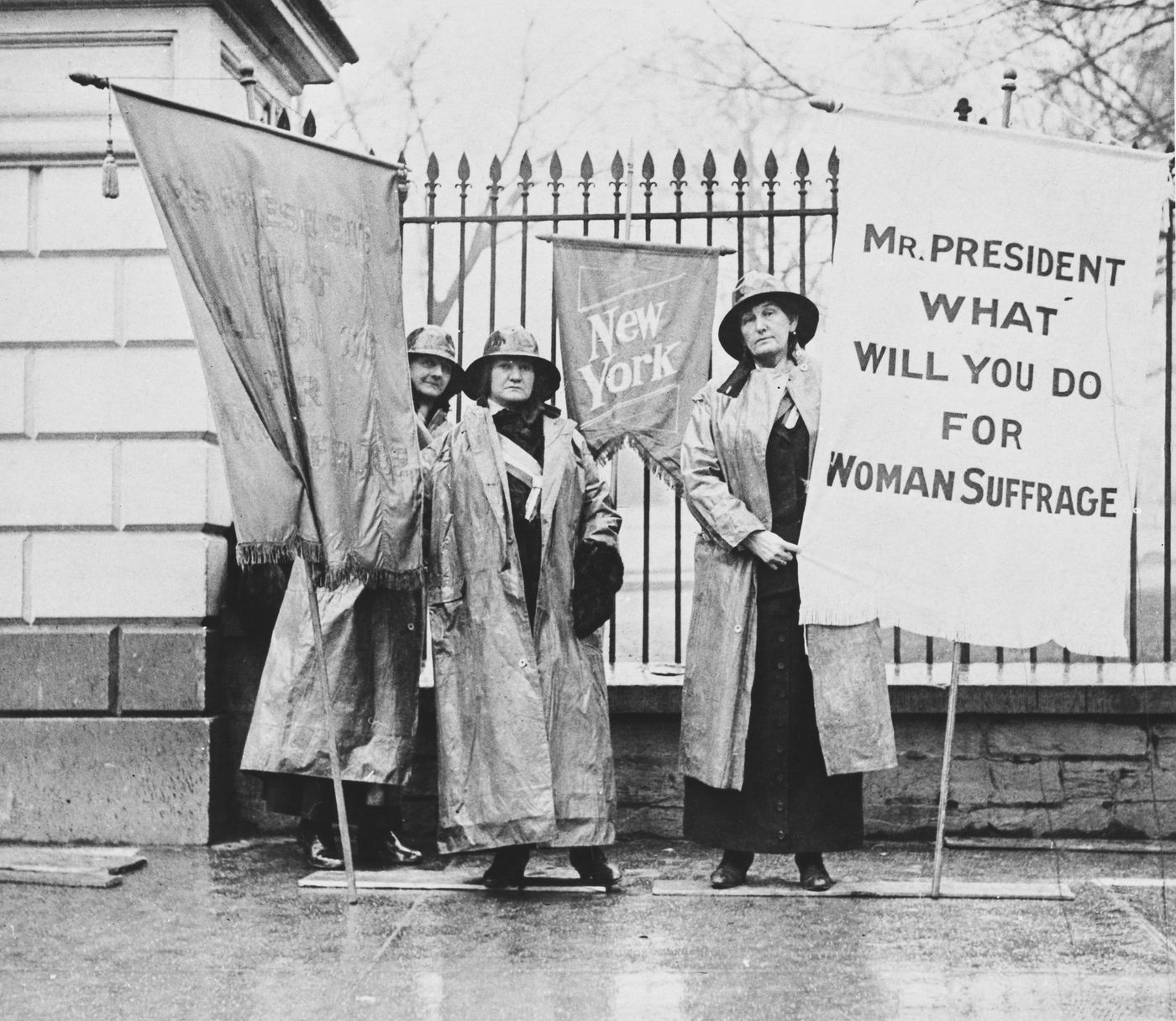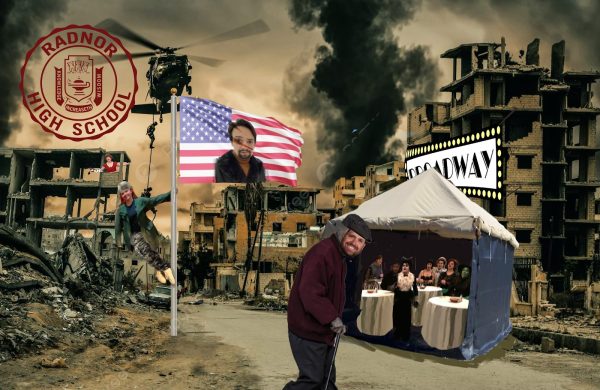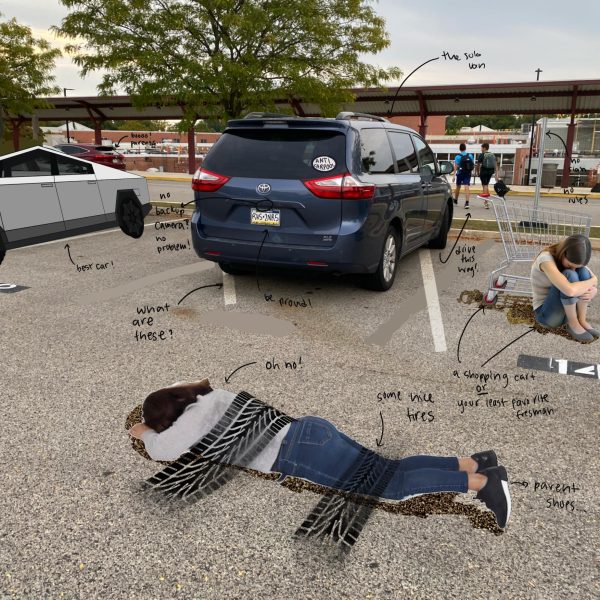A Case for Lowering Radnor’s Voting Age
September 23, 2020
During the spring of 2019, some of the most civically engaged adults of Radnor, optimistic and eager to help, chose to run for the Radnor School Board. One of these aspiring local politicians, Bradley Moore, an attorney and Radnor alum, did some door-to-door canvassing to support his campaign. When he knocked on my family’s door one weekend afternoon, my mother and I answered. He explained his candidacy and I mentioned that I was a Radnor High School student, and while this brief conversation was perfectly pleasant — he seemed like the type of responsible person who would be a capable school board member — I realized that Mr. Moore was not really there to talk to me. He was there to talk to someone who could actually cast a ballot for him. Through no fault of his own, Mr. Moore works in a system of school governance that values the opinions of people over the age of 18 more than the primary people it is serving: the students. Shouldn’t we, the students of Radnor, have a say in who is elected to the body that controls our education? As radical as it may sound, our representatives, at the state and local level, must lower Radnor’s voting age.
The Radnor Township School Board is woefully disconnected from most of the student body, despite its efforts to engage students through picking five or so student representatives. I would be surprised if, before the pandemic, more than half of RHS students could name one member of the School Board, whereas the voting adults of Radnor Township see the board members’ names on the ballot every election cycle. With no incentive to reach out to the RHS student body, the demographic they are elected to serve, the school board members spend their campaigns targeting adults.
Without the right to elect any officials, not just School Board members, students between the ages of 16 and 18 are treated particularly unfairly, as we are making the same contributions to our town as adults, but without the same rights. In 2011, across the US, people under 18 paid over $730 million in income tax alone and had no representation on how that money was spent. Though we are expected to understand and abide by the laws of our community, we are told that we know too little to be able to participate in the formation of these laws. As an extension of the 1960s phrase supporting the 26th amendment “old enough to fight, old enough to vote,” if 16-year-olds are old enough to have a job, drive, pay income tax, graduate from high school early, abide by laws, be arrested and transferred into an adult court, 16-year-olds are old enough to vote.
Proponents of this “taxation without representation” often claim that young people don’t have the necessary experience to vote. This suggestion is unequivocally false: young people are already heavily involved in politics, specifically with the issues that affect them more than any other age group, such as environmental degradation, public education policy, and long-term government debt. Our current voting requirements lead one to believe that on the night of a teen’s 18th birthday, they have a dream where the Political Science Gods bless them with newfound wisdom about our governments’ processes, giving them the necessary experience to vote.
In an interview, Margin Zheng, president of the National Youth Rights Association (NYRA), mentioned that “if you define experience as the number of years you have lived then obviously younger people don’t have as much experience, but in such a vast and changing world, the experience that young people have is valuable and must be prioritized and listened to.”
Disregarding the fact that many young people have more political experience than adults, political knowledge is not a requirement to be able to vote. Any adult with a developmental delay or a brain injury does not automatically lose their right to vote. Looking at the history of intelligence requirements and voting, it’s hard to argue that they have improved our democracy.
Even if one believes that intelligence is a relevant factor in voting rights, the Voting Rights Act of 1965 states that a sixth-grade education provided “sufficient literacy, comprehension, and intelligence to vote in any election.” In 1975, the Senate Judiciary Committee underscored this idea, stating that “it is difficult to see why citizens who cannot read or write should be prevented from participating in decisions that directly affect their environment.” (S. Rep. No. 94-295, 1975: 24)
Among people both over and under 18, it’s easy to find those who we think are unintelligent, people who we think are so ignorant or influenced by fake propaganda that they don’t deserve the right to vote. Imagine, however, that we stopped all 30-40-year-olds from voting because we thought a few of them might “vote incorrectly.” The notion that a person can vote incorrectly is flawed by nature – democracy means accepting all votes, no matter how misguided we think they are.

Others arguing in favor of youth voter disenfranchisement claim that young voters will just vote the way their parents tell them. This argument is suspiciously similar to the common claim from one-hundred years ago against the 19th amendment: “women will just vote how their husbands tell them to.” Just as we evolved to see women as autonomous, independently-thinking people, we must end the harmful assumption that children are mindless parroters of their parents’ political beliefs.
Research finds that less than half of children who are aware of their parents’ political beliefs go on to be a member of their parents’ party. Regardless, all people, adults and children, are a product of their political environment, so should we disenfranchise everyone who happens to agree with the political views of the people around them? “When adults vote the same as all of their friends or the same as their parents, people don’t care,” stated Zheng, citing our society’s “systemic ageism” as the source of this double-standard.
People ages 16-18’s inability to vote for all elected officials is troubling enough, but our inability to choose the people who control our education, the most important piece of most students’ lives, is particularly disturbing. Right now, after the school board decided to hold the first month of school virtually, many RHS students have observed how their education is controlled by officials they play no part in electing. For the first time, students tuned in to watch board meetings, and many even wrote their own public comments. But unlike the adult residents, the students submitted their comments without the power of their votes to back them up.
Zheng is hopeful, stating “I think that especially because a lot of political movements in recent years have been driven by young people — gun reform, the climate crisis, anti-racism, and other issues — we might be nearing a time when there might be a general youth uprising when lowering the voting age can actually happen”
Other school districts have taken this step successfully. For example, when 16 and 17-year-olds were able to vote for the first time in 2013 in Takoma Park, Maryland, they had a turnout rate of four times higher than voters over 18. During their first election, the youngest voters also had an impressively high turnout rate in Hyattsville, Maryland, the second place in the U.S. to lower the voting age to 16.
In Pennsylvania, however, the process for a local town to lower the voting age becomes more complicated. Takoma Park and Hyattsville’s decision to lower the voting age was possible because in Maryland 16-year-olds were already able to pre-register to vote. In Pennsylvania, however, only those who will be 18 by the next election can register.
As explained by Jamie Mogil, an election law attorney, to lower the voting age in PA, in Article seven, section 701 “the state constitution clearly states 18 years of age.” Amending “the Pennsylvania state constitution is a very long and arduous process,” explained Mogil, “it involves not one but two consecutive sessions of the State Legislature,” and then “[Pennsylvania citizens] vote to allow this change.”
Further complicating the process, after the State Legislature changes the requirements for being a “qualified voter,” the Department of Education would have to take action to modify the State School Code to allow 16-year-olds to vote for school boards in Pennsylvania.
The last time the issue of the voting age came up in Harrisburg was back in 2003 when State Senator Jack Warner (D-Allegheny) challenged tradition by sponsoring a resolution urging Congress to lower the voting age in Pennsylvania to 17, but the bill died in Committee.
This issue goes back to the long-standing conflict of state vs local rights in Pennsylvania. Mogil mentioned how “the state legislature has passed several bills to limit the power and authority of municipalities to counter what has been decided on the state level.” So even if the Radnor Board of Commissioners or School Board supported lowering the voting age, under our current statewide laws, they would be powerless to act.
Radnor should pride itself on training intelligent, civically engaged students. Voting, the foundation for a civically engaged society, should be prioritized in Radnor from the start. Research shows that the sooner people start voting, the most likely they are to keep voting. For many 18-year-olds, they are leaving home and going through major life adjustments. Trying to start the new life-long practice of voting at the same time is challenging. Learning how to vote for the first time at 16 would increase voter participation for many people, not only for two years but for the rest of their lives.
“It’s not enough to say that you have a young person on the school board who has a voice,” said Mogil, “ young people should be able to choose who is making decisions for them.”
If 16-year-olds were allowed to vote, the school board members’ lives would be unarguably more difficult. The principle underscoring all voter suppression is simple: it is easier for politicians to limit the number of people who can vote because it allows them to appeal to fewer constituents. Mogil believes that “voting is this microcosm of the bigger issues in our country,” and there is a “real fear of giving up power or control for those who do have it.”
With this change, school board members would have to campaign for the votes of high school students, but because the students will hold a body far from the majority, no one has to worry about students electing board members who promise to “abolish homework,” and “legalize in-school vaping.”
In America, we are working with a voting system that originally allowed only one-tenth of the population to vote, and though we still have a long way to go, our country has vastly improved. Lowering the voting age once more is the next step in the process of creating a fair election system.
No current elected official or Radnor School Board member, including Bradley Moore, can be blamed for targeting their campaign messages towards adults and gaining their current positions from a system that unfairly disenfranchises youth. Together, we need to build a democracy that fairly includes teenagers.







